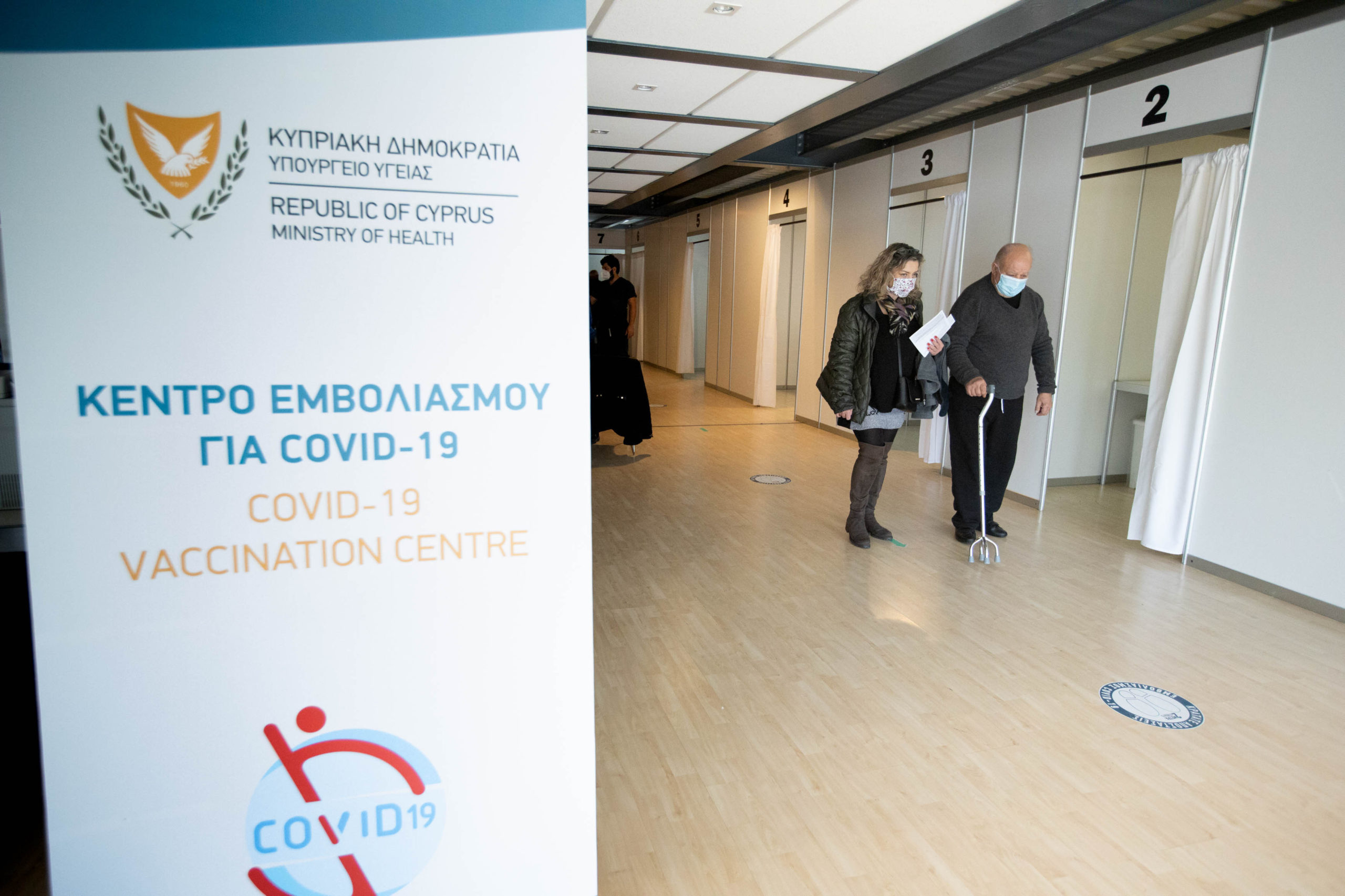While Cyprus COVID-19 cases surge, the need to speed up vaccinations is more pressing than ever, but the government lacks the necessary urgency to resolve the matter, experts told the Financial Mirror.
Although doing better than many EU states, Cyprus health authorities have come under fire for not exhausting possibilities of acquiring more vaccines outside Brussels’ centralised purchasing system.
Cyprus is currently third in vaccinations in the EU, covering close to 90,000, or 9% of its population.
But it is way behind neighbouring Israel, which has vaccinated almost 90% of its population and the UK’s 27%.
A health expert told the Financial Mirror that Cyprus is taking too long to implement its vaccination program and is in danger of losing out on the advantage mass inoculation offers in combating a pandemic.
Pulmonologist Dr Charis Armeftis said Cyprus had been tangled in EU red tape, which failed to secure large quantities of COVID-19 vaccines on time.
“One of the EU’s biggest failures was that it failed to acquire commitments from manufacturers regarding delivery dates.
“I get that as part of the union, we have to play by the book and wait for our share of vaccines delivered, but we, as Cyprus, have not exhausted other ways of acquiring vaccines.
“We haven’t even started looking at alternatives,” said Armeftis.
He argued that other EU countries have managed to acquire additional doses other than those allocated to them.
Armeftis pointed to Malta, explaining that the half a million strong nation secured a total of 600,000 doses from Pfizer-BioNTech, up by 340,000 initially secured through the EU’s joint procurement procedure.
Malta, according to local media, has acquired an additional 80,000 vaccines from Moderna.
“Moreover, other countries have ordered quantities of the once-scorned Russian Sputnik V. I am not saying that Cyprus should be buying vaccines not approved by the EU, but the country has not explored any alternatives.”
He said Cyprus had the option of participating in one of the large clinical trials, as did Brazil and South Africa.
“Being a small island nation with no land borders would offer pharmaceuticals the rare opportunity of looking into how quickly the pandemic could be subdued with a vaccination program.
“We could have easily offered Pfizer to take part in their clinical trials in exchange for 600,000 vaccines.”
“If authorities were brave enough, we could approve vaccines ourselves, but we did not think outside the box.
“Cyprus vaccine needs is peanuts compared to other countries. If necessary, Cyprus could have reached deeper into its pockets to acquire more vaccines.”
The doctor argued that the government showed “criminal hesitation” and lacked entrepreneurship.
“If we had more vaccines at our disposal, we would have been done by now with vaccinations, and we could have reopened the economy with no particular fear,” said Dr Armeftis.
He argued the Health authorities had not handled the vaccination rollout as well as they could have.
“They focused on vaccinating people according to their age and not their health condition.
“They started from 90-year-olds, making their way down, now to 69, while there is a large group of people in their 50s with much more serious health conditions than many in their 70s.”
He wondered why the Health Ministry did not use the General Healthcare System to identify the most vulnerable members of society and work their way down from there.
Vaccines better than testing
A prominent scientist in the government’s fight against COVID-19 until recently, Dr Leondios Kostrikis, told Philelelftheros daily the emphasis should not be so much on mass testing but on bringing vaccines.
“It has been confirmed in Israel that the Pfizer vaccine offers up to 95% protection against virus transmission and 98% against morbidity; it is clear that emphasis must be placed on vaccines.”
Kostrikis argued that mass testing campaigns were not thought out, as when the costs are taken into consideration, it becomes clear they should be more focused on areas with outbreaks.
“But given the certainty that only vaccinations will restore normality in society, the focus should be on securing more quantities of vaccines, so that the economic cost has a direct and effective benefit.”
Health Ministry spokesperson Margarita Kyriacou said everything is being done to ensure that Cyprus gets its fair share of vaccines as quickly as possible.
“The facts speak for themselves. Cyprus has been an active participant in all joint procurement procedures for vaccines by the European Commission.
“The country has secured the maximum number of vaccines that could be allocated to it through the EU and exercised its right to benefit from additional orders put in at a later time.”
She said Cyprus had pre-purchased 4 million doses, corresponding to approximately inoculating twice the population of 900,000.
“No country in the EU, even those with bigger negotiating power, has been able to secure additional quantities on its own while paralleling or bypassing the EU joint procurement process.”
Asked about how Malta was able to acquire additional vaccines, Kyriacou confirmed that authorities are aware of the fact but are in the dark about how the country was able to acquire them.










